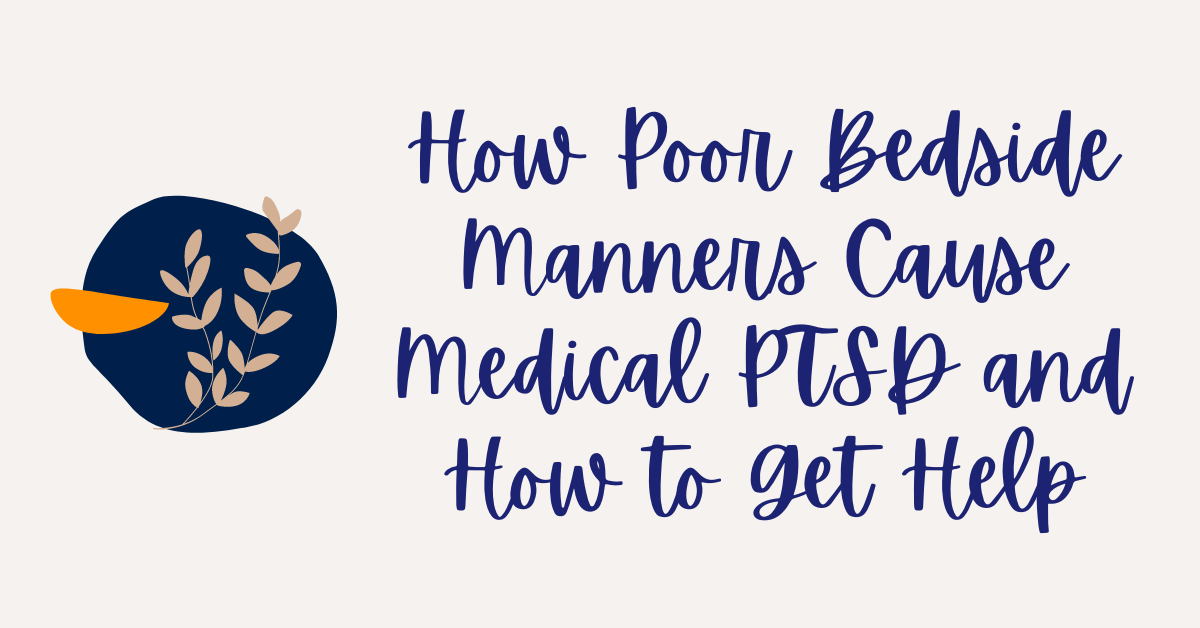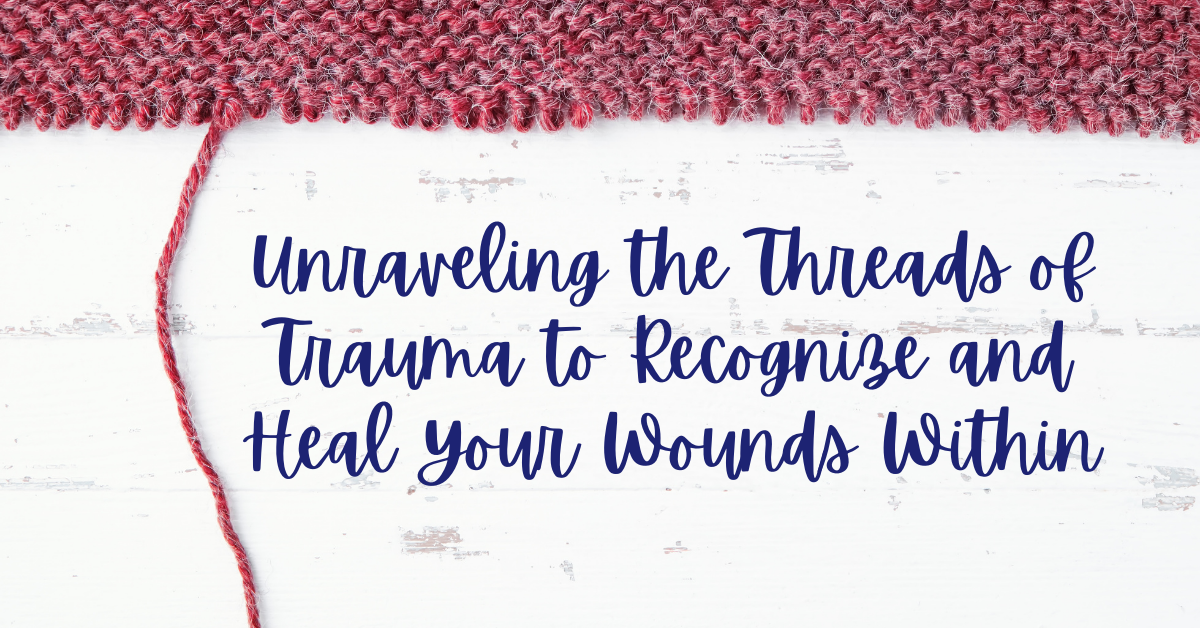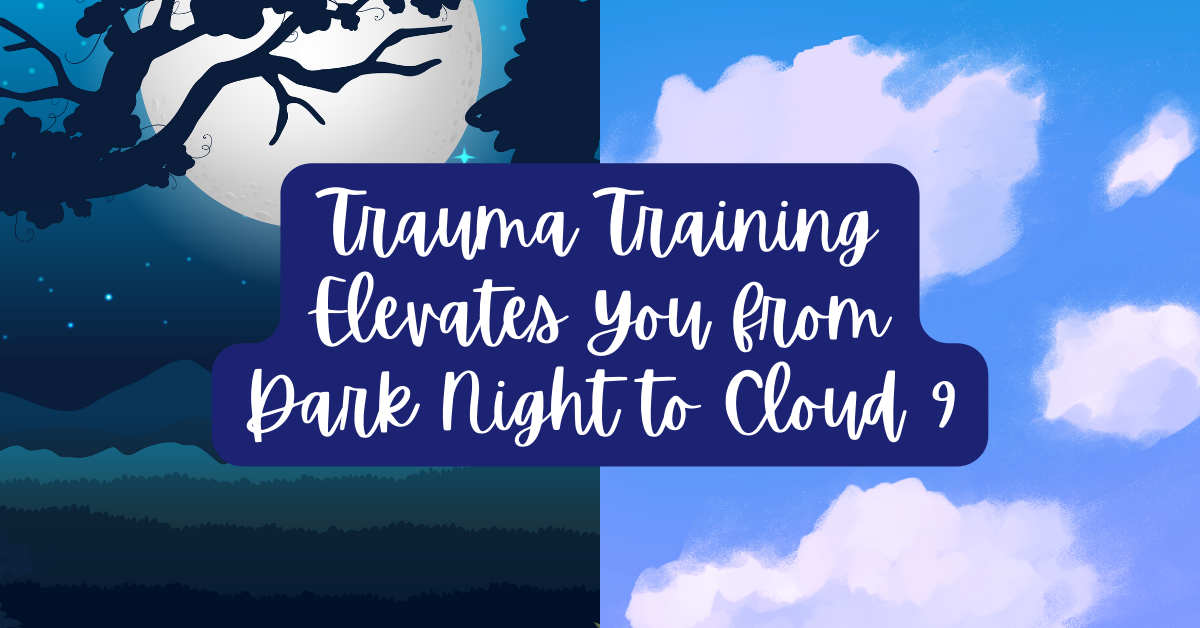When most people talk about medical PTSD, they refer to long-lasting emotional trauma caused by a severe, possibly life-threatening medical issue. Patients who are forced to confront their mortality naturally have strong emotions tied to the event.
While important, this explanation doesn’t address medical trauma caused by the human-to- human element of healthcare. However, this type of PTSD can be just as impactful in someone’s life. Like many forms of PTSD, medical trauma presents itself through re-experiencing, avoidance, and hyperarousal.
Without the help of a therapist or wellness coach trained to help you through trauma, you can live with these medical PTSD symptoms for the rest of your life.
How Is Emotional Medical PTSD Caused?
How do you identify trauma?
There are nearly endless scenarios that can cause chronic illnesses like PTSD. As mentioned above, it can be the result of pain experienced during operations, a near-death experience, or a surgeon leaving a foreign object inside a patient after closing.
But what about the human-to-human element? Doctors, nurses, and other medical staff can create a lot of emotional trauma in their patients’ lives simply by how they conduct themselves. Mistreatment from medical personnel can come in many forms:
- Being dismissed or not listened to
- Having your symptoms or experience minimized
- Being accused of exaggerating or lying
- Being told it’s all in your head
- Being misdiagnosed (which affects 12 million Americans each year)
- Having your wishes or concerns ignored
- Being treated roughly or without compassion
- Medical staff acting outside your best interests (not taking appropriate measures to ensure your maximum health, safety/comfort)
For example, if you suffer from chronic illnesses that are difficult to diagnose, you may be told it’s all in your head. After the practitioner runs a few tests, they determine that there’s nothing wrong with you. But what about your symptoms that brought you to the doctor in the first place?
This can leave you feeling helpless and hopeless. You may even feel violated, depending on how you were mistreated.
For a more personal example, I have chronic sinus issues that require surgery. Three years ago, I met with a doctor who told me he had to send a camera up my nose to get a proper diagnosis. I told him I have a lot of anxiety around breathing and wasn’t prepared for that type of procedure.
As I continued talking, he sprayed a numbing agent up my nose, and before I knew it, he was sending the camera up anyways. Even as I protested and asked what he was doing, he continued the procedure, snapping that he already told me. Even as a wellness coach who understands emotional trauma, I have residual fear and anxiety to this day about going back.
By no means are all doctors callous. However, one indifferent, impolite, or unsympathetic experience can significantly affect your view towards healthcare. Especially if you’re already dealing with something as big as chronic illness. And even more so, if you happen to have a history of toxic stress or abuse, which many chronic illness sufferers do.
The Short-Term and Long-Term Effects of Medical PTSD
Medical PTSD can have a profound effect on your life. You may immediately experience strong emotions like fear, anger, injustice, anxiety, depression, and more. You may act out, withdraw from other people, and even start to feel numb.
However, there are other long-term effects that can be even more poignant in your life.
Fear and Mistrust of Health and Medical Treatment
Being mistreated by medical staff can lead to a natural fear of medical treatment or healthcare. You may develop a strong sense of mistrust in medical practitioners and, potentially, healthcare in general. This can lead to avoiding medical treatment, even when it’s absolutely necessary.
Chronic Illness
Over time, without treatment, your chronic illness is likely to get worse.
Additionally, medical PTSD can lead to developing new chronic illnesses and emotional conditions, like anxiety and depression. Medical mistreatment can devalue your sense of self-importance, which can result in low self-esteem and confidence issues.
How to Prevent or Respond to Medical PTSD
The question then, is how do you prevent medical PTSD? Just as importantly, how should you respond if you’re subjected to medical mistreatment?
Self-responsibility calls us to control the things we can. In most cases, it’s about turning negatives into positives and learning how to be happy with yourself. In the case of medical PTSD, it means learning how to stand up for yourself to prevent medical trauma.
Part of practicing self-responsibility is doing all you can to assemble your medical dream team. It takes some work up front but having a team of people that you know have your best interest in mind and are doing all they can to help you to well worth the effort!
I have created a resource for you to download that will help you do just that. This guide walks you through the 3 simple steps to assembling your dream team of practitioners.
Let’s assembly my medical dream team!
A tip making put this guide work for you…put these 3 steps into practice before you need a doctor! When you’re not feeling well is not the time to try to find help. When you’re struggling, your prefrontal cortex (the part of the brain that makes decisions, among other things) shuts down. Literally. It goes off line, meaning this is the last time you need to be making complicated decisions.
As you know, living with chronic illness is an exhausting non-stop fight. You have to get creative and diligent about taking care of yourself. Download this free gift and put it to work for you now!
Treating Medical PTSD With the Help of a Wellness Coach
If you’ve experienced medical mistreatment in the past, I can help you move past it. As a trauma-informed wellness coach, I know exactly what you’re going through. I’ve experienced chronic illness and medical trauma.
Contact me today to learn more about how I can help or to set up a Discover Session so we can dive right in. And just so you know how genuinely I am invested in you, here’s a free gift again to help you assemble your dream team, avoid more mistreatment and take control of your life and your symptoms.












